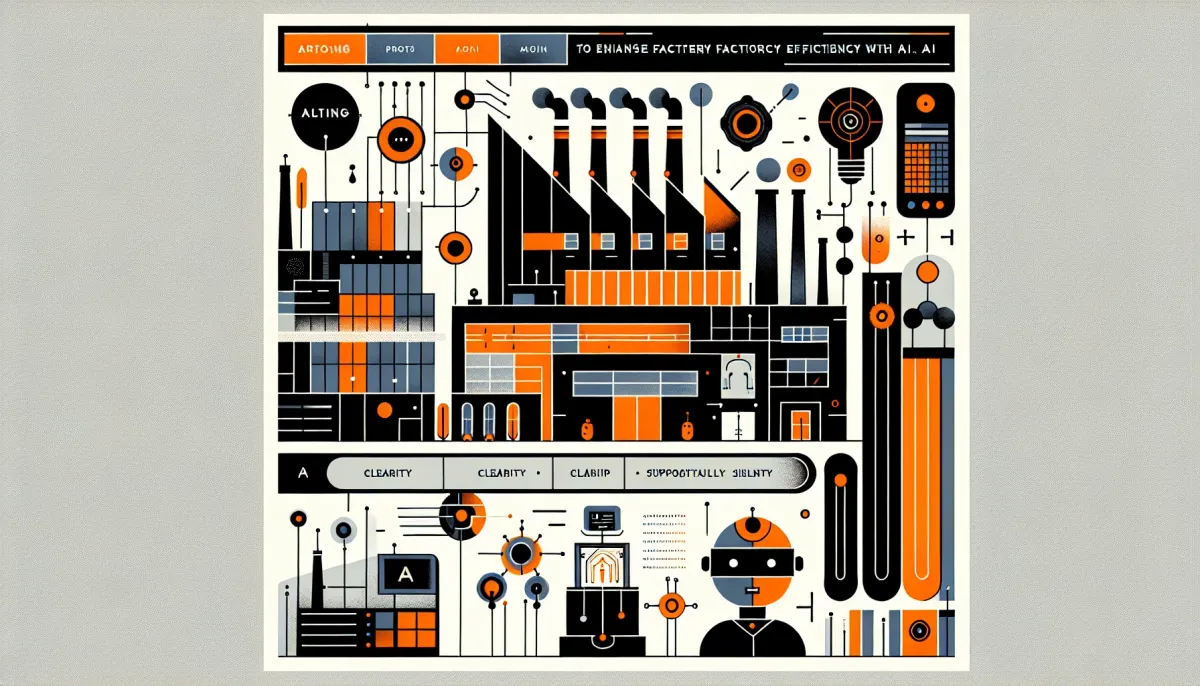Juna.ai Raises $7.5M to Revolutionize Factory Efficiency with AI Agents

AI Juna.ai is on a mission to make factories more energy-efficient using AI agents. These agents are gaining popularity, thanks to recent advancements in generative AI and large language models. But what exactly are AI agents? In simple terms, they are software programs designed to perform tasks and make decisions with varying levels of independence.
Unlike traditional chatbots, AI agents can help people get things done more effectively.
While this field is still developing, big names like Salesforce and Google are investing heavily in AI agents. Recently, Amazon's CEO Andy Jassy hinted that a future version of Alexa might be more action-oriented.
Startups are also taking advantage of this trend. One such startup is Juna.ai, a German company focused on improving factory efficiency. They aim to automate complex industrial processes to boost production, enhance energy efficiency, and reduce emissions.
Juna.ai recently announced that it raised $7.5 million in seed funding from Kleiner Perkins, a Silicon Valley venture capital firm, along with Norrsken VC from Sweden and Kleiner Perkins’ chairman, John Doerr.
Founded in 2023 by Matthias Auf der Mauer and Christian Hardenberg, Juna.ai combines their expertise to tackle manufacturing challenges. Auf der Mauer previously started a predictive maintenance company called AiSight, which he sold to a Swiss firm in 2021. Hardenberg was the CTO at Delivery Hero, a major European food delivery service.
At its core, Juna.ai wants to help manufacturing facilities become smarter, self-learning systems. This transformation can lead to better profit margins and a reduced carbon footprint. The company targets heavy industries like steel, cement, paper, chemicals, wood, and textiles, which have large-scale production processes that consume significant resources.
“We focus on process-driven industries, especially those that use a lot of energy,” Auf der Mauer explained. “For example, chemical reactors that generate heat to produce various products.”
Juna.ai’s software integrates with existing production tools, such as those from Aveva or SAP. It analyzes historical data from machine sensors, including temperature, pressure, and output quality.
By using this data, Juna.ai helps companies train their in-house agents to find the best settings for their machinery. This gives operators real-time insights and recommendations, ensuring everything runs efficiently with minimal waste.
For instance, a chemical plant producing a specific type of carbon may mix oils in a reactor through an energy-intensive process. To maximize output and reduce waste, optimal conditions are crucial, including the right levels of gases and oils and the correct temperature. Juna.ai’s agents use historical data to determine the best settings and adjust for real-time conditions, guiding operators on what changes to make.
If Juna.ai can assist companies in fine-tuning their production equipment, they can improve output while lowering energy consumption. This approach benefits both the company's profits and its environmental impact.
Juna.ai has developed custom AI models using open-source tools like TensorFlow and PyTorch. They employ reinforcement learning, a method where models learn through interactions with their environment. The model tries different actions, observes the results, and improves over time.
“The exciting thing about reinforcement learning is its ability to take actions,” Hardenberg said. “Typical models focus on predictions or generating outcomes but lack control.”
Currently, Juna.ai acts more like a “copilot,” providing a user interface that suggests adjustments to machinery controls. Many industrial processes are repetitive, so enabling a system to take real actions is beneficial. For example, a cooling system may need constant adjustments to maintain the right temperature.
Factories are already familiar with automating controls using PID and MPC controllers, so Juna.ai can implement similar solutions. However, as a new AI startup, starting with a copilot system is a more manageable approach.
Hardenberg emphasized that the platform's value lies not in saving labor, as factories are already efficient in automating manual tasks. Instead, it focuses on optimizing processes to cut waste.
“There’s not much to gain by removing one person compared to optimizing a process that costs $20 million in energy,” he noted. “The real gain is whether we can reduce that cost from $20 million to $18 million or $17 million.”
Right now, Juna.ai offers a tailored AI agent for each customer using their historical data. However, the company plans to introduce off-the-shelf “pre-trained” agents that require minimal training on new customer data in the future.
For example, if two companies use similar chemical reactors, it might be possible to transfer AI agents between them, creating a model that fits a specific type of machinery.
Yet, many enterprises have been hesitant to fully embrace the AI revolution due to data privacy concerns. While Juna.ai understands these issues, Hardenberg said they haven’t been a major problem so far. This is partly due to their data residency policies and the value they promise customers in unlocking insights from their data.
A little over a year since its founding, Juna.ai already has several customers, although Auf der Mauer cannot disclose specific names yet. All clients are based in Germany and either have subsidiaries elsewhere or are part of larger international companies.
With the fresh $7.5 million in funding, Juna.ai is well-positioned to grow beyond its current team of six, focusing on enhancing its technical expertise.
